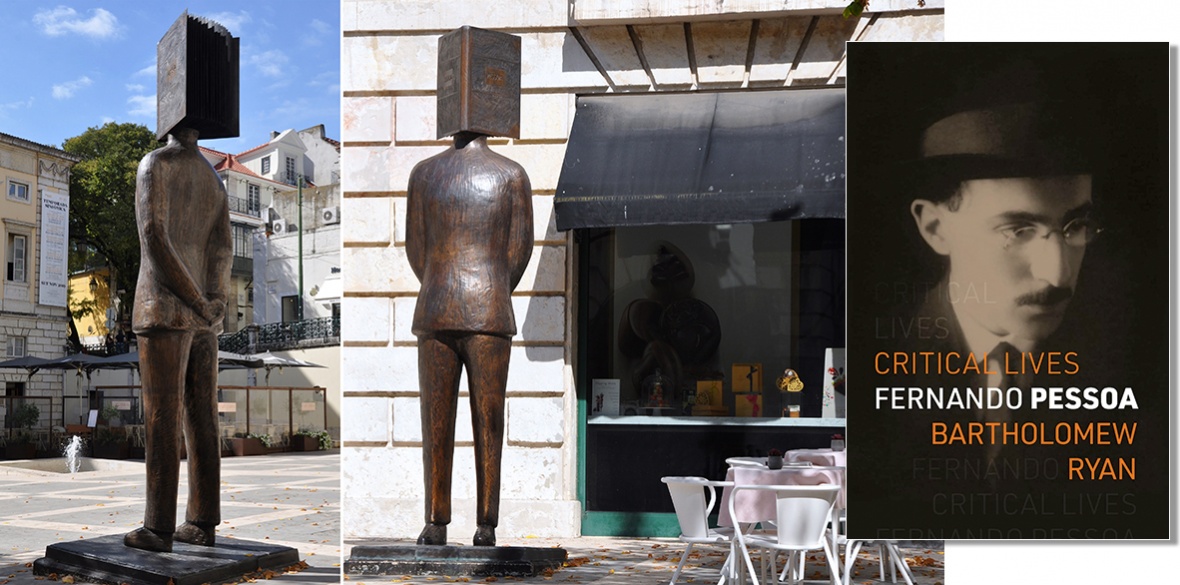This is the last article you can read this month
You can read more article this month
You can read more articles this month
Sorry your limit is up for this month
Reset on:
Please help support the Morning Star by subscribing here
Critical Lives: Fernando Pessoa
by Bartholomew Ryan
Reaktion Books £12.99
FERNANDO PESSOA, Portuguese poet of the enigmatic self, is the latest focus of the Critical Lives series from Reaktion Books; a series of short critical biographies that presents the work of important cultural figures in the context of their lives.
Despite living in relative obscurity, Pessoa is now an increasingly recognised figure of modernist literature. This book, written by a Lisbon-based university philosopher, attempts to locate Pessoa within the ideas and events, influences and shifting politics of his age.
To capture Pessoa is challenging: “I think therefore I am not” — Pessoa’s flipping of Descartes’ famous saying characterises much of his writing. He is a self-proclaimed empty vessel, a thing of shreds and patches, fragmentary writings, abandoned projects, works unrealised.
“The strange case is that of Fernando Pessoa, who doesn’t exist, strictly speaking,” Pessoa wrote of himself. Pessoa’s greatest prose achievement, The Book of Disquiet, was put together after his death when an enormous trunk of papers was found in his room.
Even photos of Pessoa, threaded through the book, from childhood to just before his death, fail to render him as a securely recognisable person — ironic given that “Pessoa” means person.
With his frail body and masklike face, Pessoa slips past the eye like a reflection briefly sliding across a cafe window on a busy street. Apt in a sense because for most of his adult life Pessoa haunted the same few streets of turn-of-the-century Lisbon, going from his mundane work as a copy-editor to his cafe life among a circle of avant-gardists.
Author Bartholomew Ryan gathers together the facts of Pessoa’s life and milieu. The early loss of his father to tuberculosis, followed by the death of his baby brother, and the family’s hasty migration to South Africa with a new father, are set out in a chronological trudge through the early years.
Given Pessoa’s later difficulties with intimate relationships — “You masturbator! You masochist! You man without manhood!” as his own automatic writing accused him — the book might have benefitted from some psychoanalytical considerations.
In fact, as Ryan notes, publication of Pessoa’s poetry series The Anarchist Banker, coincided in 1922 with that of Freud’s revolutionary work The Ego and the Id. Yet critical thinking here ignores one of the age’s greatest discoveries: the poet of dreaminess, latency and impossibility evades ideas of the unconscious and Oedipal guilt in this biography.
Instead, Pessoa’s pursuits of the esoteric are given generous coverage: his interest in astrology, the detailed horoscopes which he created for himself and others, including occultist Aleister Crowley (with whom Pessoa shared a somewhat shambolic encounter), the seances and automatic writing.
Setting out all of the aspects of Pessoa’s interests, giving them equal weight and attention, makes for a somewhat descriptive engagement, missing the critical mark in places.
Pessoa began his formal studies in philosophy, abandoning them early on — “I realised that I was a poet philosopher, not a philosopher poet.” He maintained a philosophical approach to his own being but ultimately Pessoa is best encountered within the playfulness of his writing, and this is missing here.
More secure is the book’s detailing of Pessoa’s “self-fecundation” as he termed it. Famously, Pessoa invented “heteronyms,” distinct writers who created “through” him.
Begun in childhood, as is common for many children, Pessoa made up imaginary friends to play with. In adulthood his imagination assumed more complex personae, each one becoming an individual “voice” in his writing.
Distinguishing heteronymic writing from simple pseudonyms, Pessoa claimed to spawn whole new identities for the many selves that from 1914 crowded into his small room. Over 70 different personalities visited Pessoa, each with their own birthdate and horoscope, address, peculiarities, writer’s voice and ontology.
The paradox of such a peopled cosmos surrounding the poet of isolated emptiness, the writer of obsessively doubted selfhood, is balanced by the age of the machine, the new age of instantaneous replication which Pessoa lived through.
Intimacy was the most feared animator of this revolving circus. Pessoa represents an estranged consciousness constantly barred from physical connection with an intimate other. Rather, Pessoa created himself as a textual self at the edge of the abyss of the self. “Like a bow that’s come undone, the soul does not in itself exist,” he wrote.
In The Book of Disquiet we find him closest to himself when most detached: “I envy — but I’m not sure that I envy — those for whom biography could be written, or could write their own. In these random impressions … I indifferently narrate my factless autobiography, my lifeless history.”
Heteronyms allowed Pessoa a playfulness with texts that is freshly contemporary — post-modernist long before such thinkers as Jaques Derrida were born. He is a cellophane man, insubstantial even to himself.
The attempt to conceive realities is poignant given Pessoa’s early losses, but he made an art out of focusing on his own lack of identity. His poetry and prose express the sense of alienated, fragmented, modern humanity.
The Book of Disquiet is one to have by the bedside for those dark nights of the soul.
This Critical Lives study is a good companion piece in filling out the facts of his life.
Pessoa died of an alcoholism-related illness aged 47.











